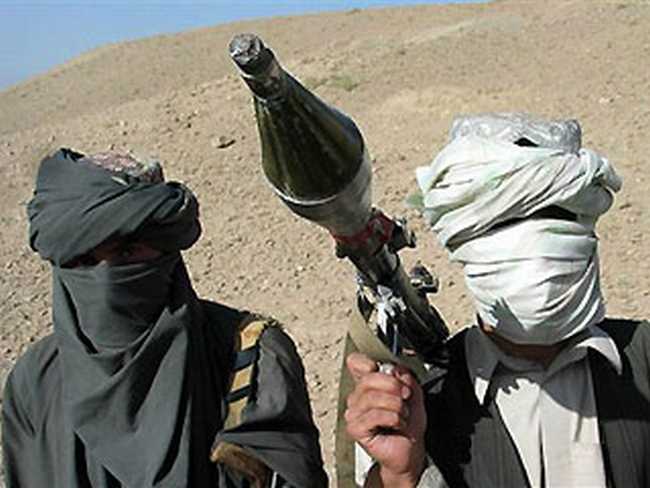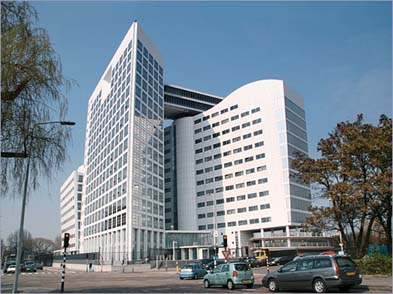By: Alexander Corbeil
In a dramatic turn of events last week, the spokesman for the Afghani Taliban, Zabiullah Mujahid, announced that the insurgent group was looking into opening a political office in Qatar. Although no concrete steps have been taken in this direction, the announcement comes as the result of more than two years of secret negotiations begun by the now-deceased US special envoy Richard C. Holbrooke and continued by his successor Marc Grossman. Secretary of State Hillary Clinton and various US officials are wary of discussing any negotiations but it seems that the opening of the Qatar office is not without Taliban preconditions. Mujahid has made it clear that the opening of a political office, a key demand of the US which was previously backed by Afghan President Hamid Karzai, rests upon the willingness of the US to release five senior Taliban leaders fromGuantanamoBay. Although preliminary steps have been taken, the road to transparent peace negotiations is not without major obstacles that may derail crucial confidence building measures.
While the USadministration has agreed in principle to the release of Taliban detainees, there are domestic issues at play. To begin with, there is congressional resistance to the release of Taliban leaders from America’s most notorious prison. Many congressional members have reportedly sent classified letters to the Obama administration challenging this transfer plan. Given previous instances of releasedGuantanamo detainees returning to the battlefield, lawmakers from both parties have enforced strong restrictions on transfers. For the Taliban deal to go forward, both the Secretary of Defence and the Secretary of State would have to certify to Congress that the detainees would be monitored and transferred to a country where they could not re-engage in terrorist activity. Given the high profile links betweenQatar and the Taliban, including the possible opening of a political office inDoha, it seems that the Gulf country could become home to these five Taliban leaders.
Domestic constraints are not the only roadblock towards normalized relations between the USand Taliban. Afghan President Hamid Karzai is reportedly hesitant to give his blessing to the peace talks, due to the lack of involvement of his government. Karzai views direct talks between the USand Taliban as a precursor to a power sharing arrangement between Kabuland the Taliban, which has attempted to assassinate him multiple times. In response to the Taliban office announcement, President Karzai recalled the Afghan ambassador to Qatar in protest. The Afghan president had previously wanted a Taliban office to be situated in either Saudi Arabia or Turkey, his strongest regional allies. Due to political strong-arming by the US government and Taliban reluctance to open up shop in either country, Karzai will now be forced to allow the Qatari office. In order to gain Karzai’s approval, Marc Grossman, the current Special Representative to Afghanistan and Pakistan will visit Kabul next week. According to Dean Nelson of the Daily Telegraph it seems that Mr. Grossman will spin the talks as a preliminary step to transparent and robust negotiations between Taliban leadership and Afghan government representatives. If Karzai is willing to stand up to those in opposition to peace talks within his own government, it is likely that he will bow to US pressure and agree to the negotiations. Given the fact that NATO and American troops will leaveAfghanistan by 2014, Karzai may be forced to begin the peace process before his strongest allies depart.
The other big player who has been uncharacteristically silent on burgeoning US-Taliban negotiations is neighboring Pakistan. As the Pakistani Inter-Services Intelligence (ISI) has close links with the Afghani Taliban, any peace process must be given a green light from Islamabad. The ISI views the Taliban as a key strategic asset in its regional competition with India and as a safe guard against losing clout within Afghanistan following NATO’s withdrawal. With US-Pakistani relations at an all time low it is unclear if these negotiations will get the full support of regional interests, a much needed precondition for success. Current constraints aside, the Pakistani government has previously voiced concerns regarding marginalization from peace negotiations between the major actors inAfghanistan. Thus, the Obama administration may get the reconciliation process started with both the Pakistani government and military in order to be given their full support in any Afghan peace endeavor.
Although promising, the possibility of a new chapter in US-Taliban relations will not equate to an immediate end to open hostilities between the two forces. Taliban spokesman Zabiullah Mujahid on Thursday stated that, “…this understanding does not mean a surrender from Jihad.” His statement comes as a suicide bomber killed the governor of Panjwai district on Thursday nearKandahar city, a day after the city’s police chief narrowly escaped an attempt on his life.
Further Readings:
Taliban to Open Political Office in Qatar; Against Odds, Path Opens Up for US-Taliban Talks ; Taliban set Terms as US Pushes for Talks; Guantanamo Bay Taliban Detainees to be Released: Report ; Lawmakers may seek to Block Taliban Transfer ; The Road Map to the Afghan End Game ; Peace Talks with Taliban await nod from Karzai ; Hamid Karzai condemns US Marines urinating video ; Taliban: More Fighting Amid Peace Talks ; The ISI and Terrorism: Behind the Accusations



